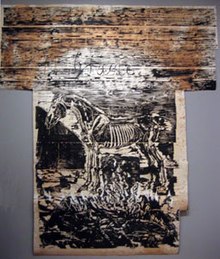“I have not an ounce of religious conviction in my body, yet I still feel the urge to fight with the forces of unknown walls. It has almost become a necessary part of life for me, to always look for the next challenge, the next triumph, the next conquest, to feel happiness again, even if only for a moment, and think that, well, history may never have been, so shall we always remain suspended in the present.” And "all that remains is to embrace the obstacle and the unknown, to fight for meaning, to encounter and fight through fear and dread, to conquer all."
So said mountaineer Dougal Haston. Born in Scotland, he learned to love mountains and climbing them very early in his life. Strong, agile, and gifted with incredible stamina, he soon made his mark across the globe. In the Alps, he joined an epic first direct winter ascent of the north face of the Eiger. Later, he scaled the southwest face of Mt. Everest, the first person to do so (without oxygen), even spending, with his partner, a night just below the summit.
And he survived. But in October 1976 he left his house in Switzerland alone to ski a mountain face, a very dangerous mountain face, on which he had long set his sights. While he was on it, the snow on the face avalanched, and he died.
His body was found the next day.
Some might see Dougal's words as the enduring human call to wrest meaning from a seemingly pointless reality. Others will view them as the picture of futility, a senseless effort to find meaning when there is none to be found. In a way, however, it's both. We all live, we all die. And we all look to make those years meaningful.
Hence, the ultimate question is this. Will we seek to encounter the meaning that is necessarily there, or will we strive to find the meaning that, absent viable genesis, will never be found?












